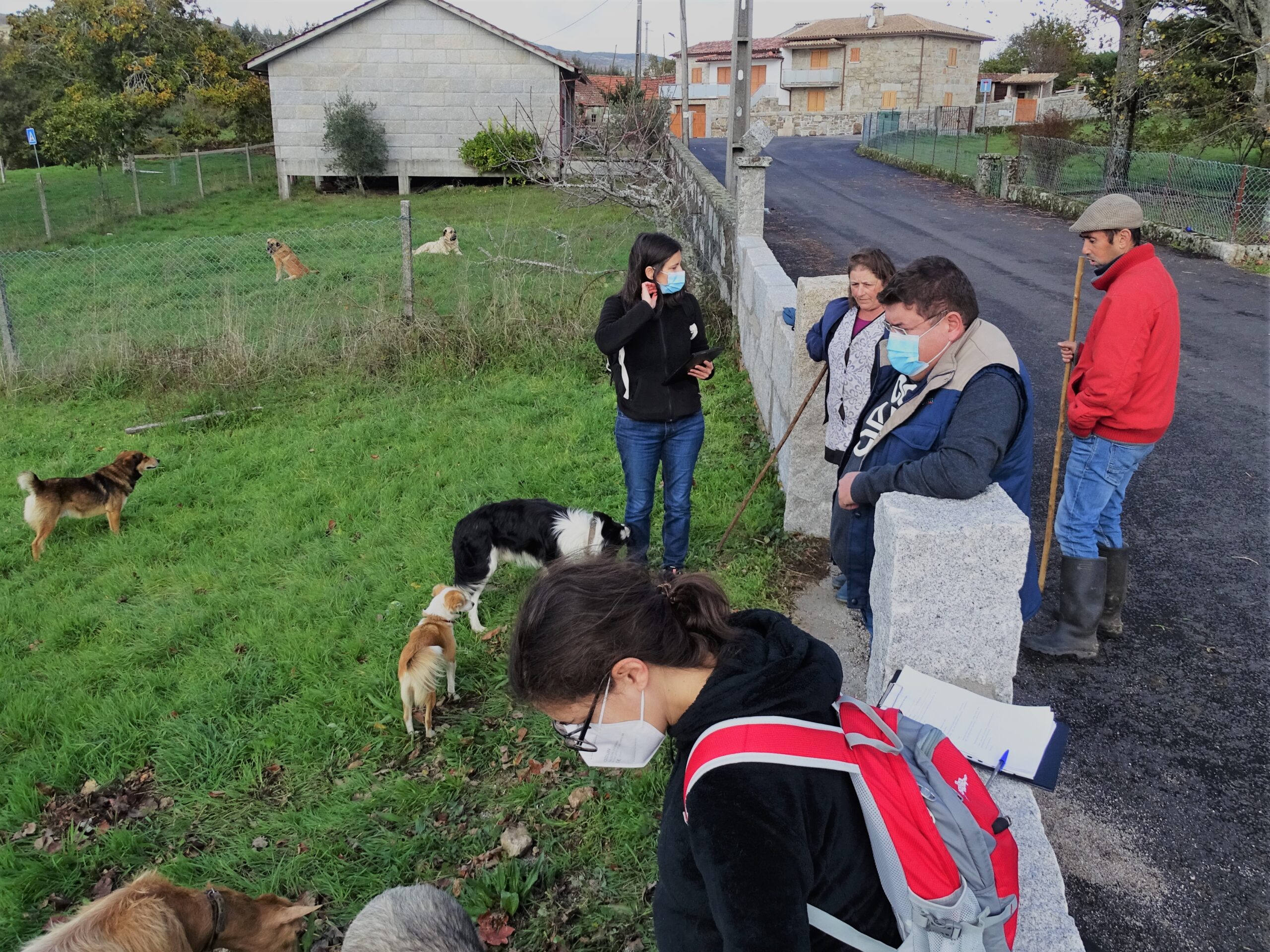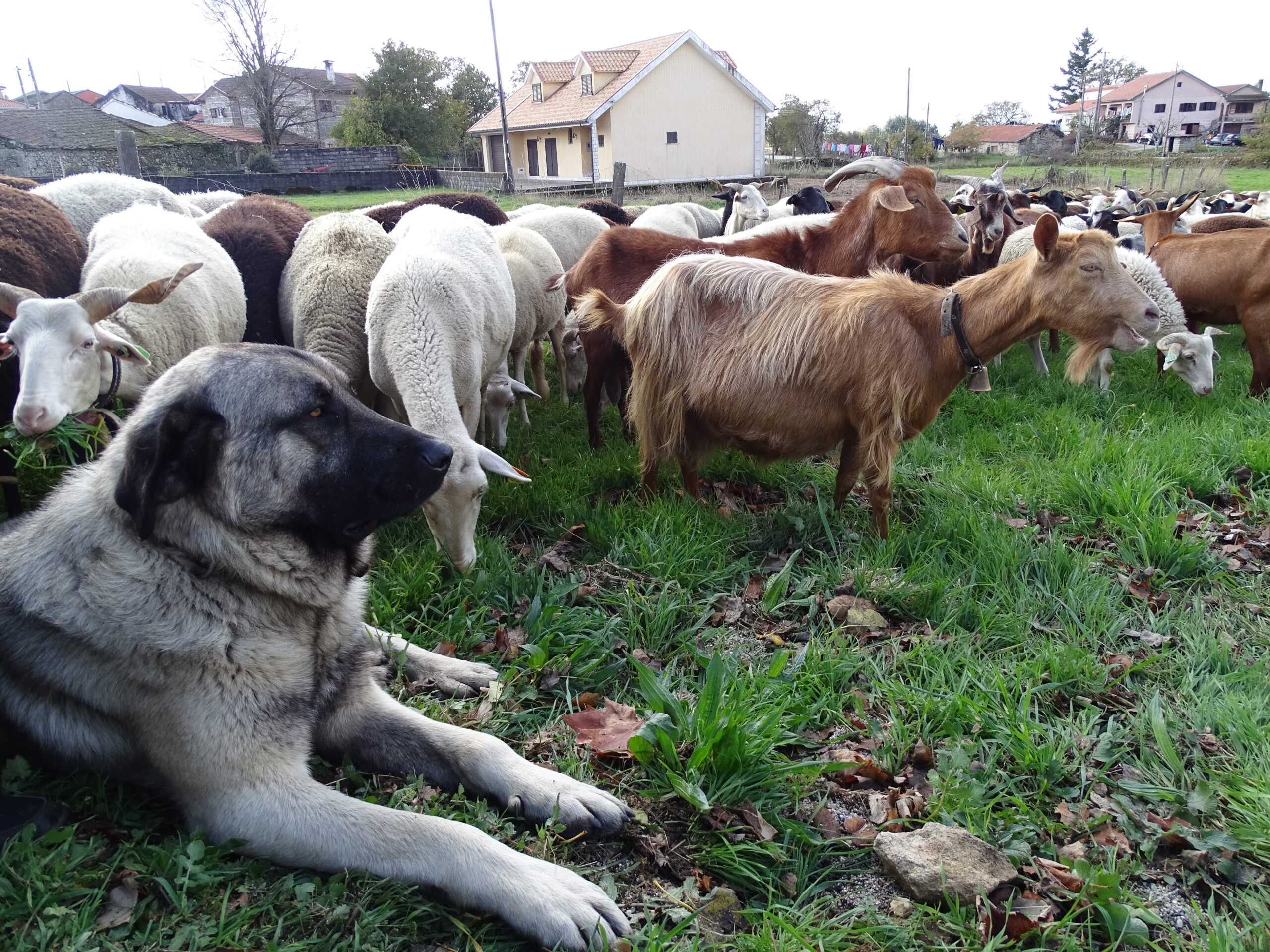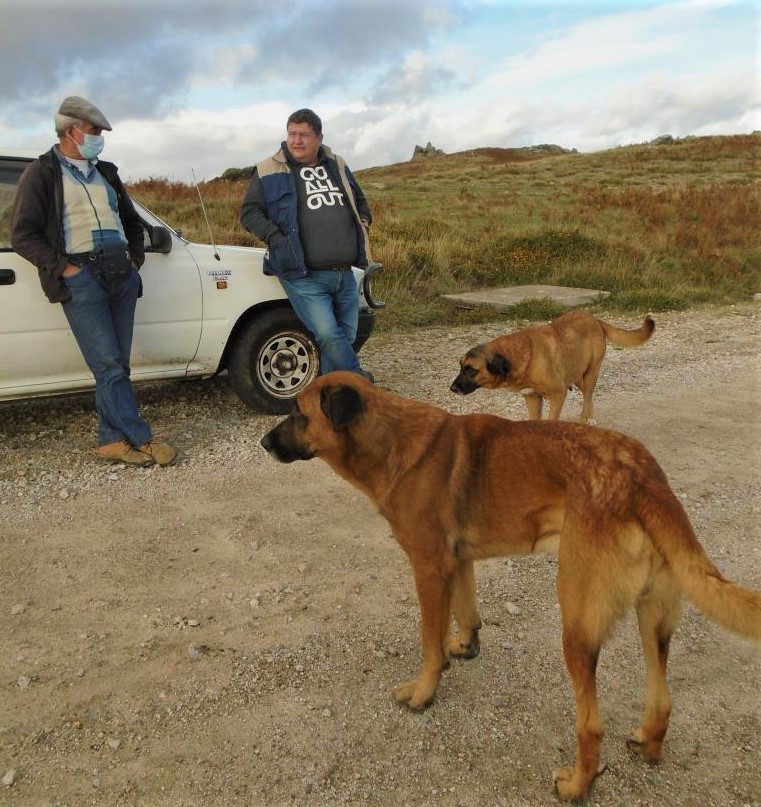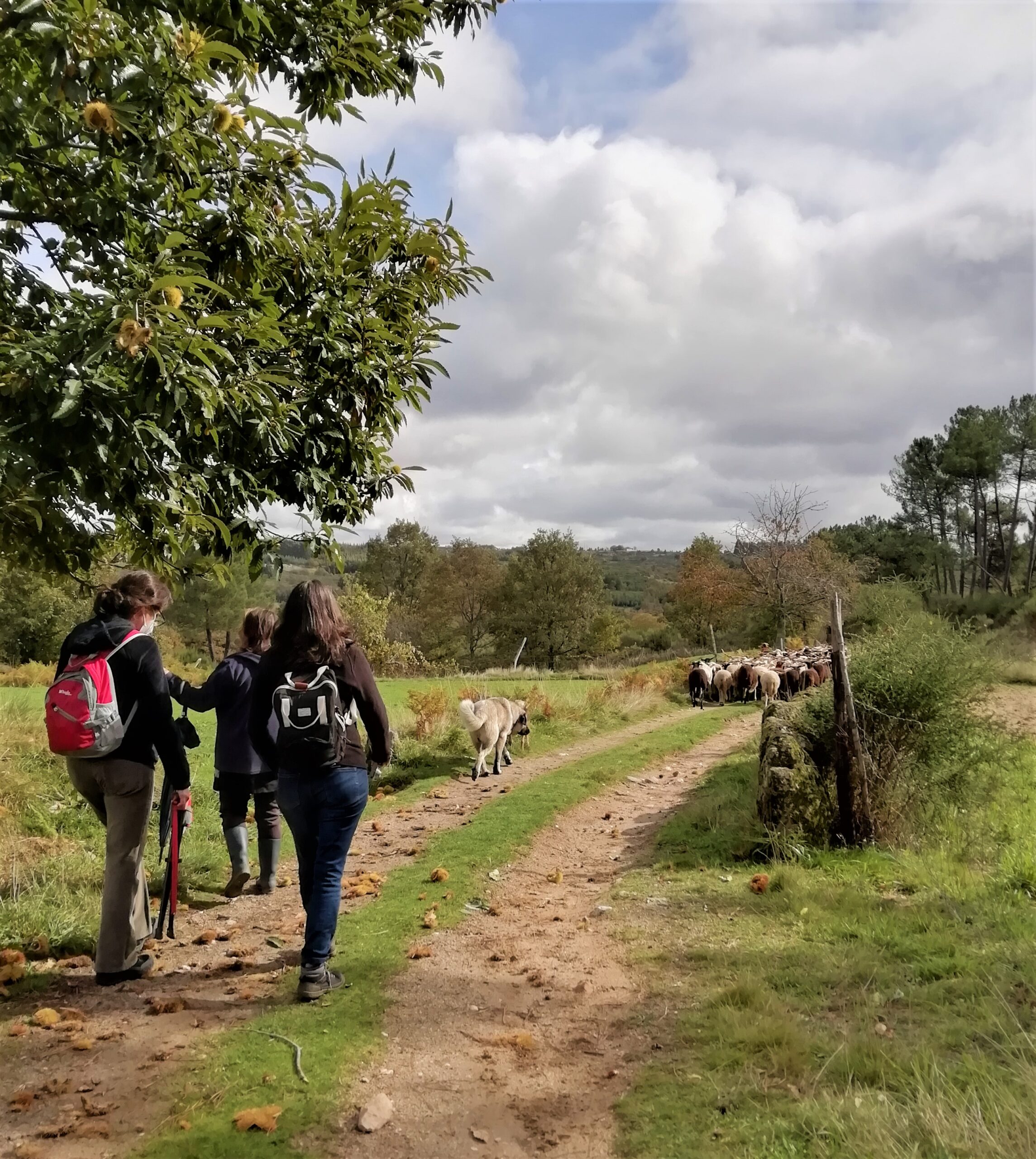Between August and October 2020, a training session was held with Grupo Lobo to train the Rewilding Portugal team and the veterinarians collaborating with the LIFE WolFlux project. This training session allowed to the participants to gain more knowledge about the selection and integration of livestock guarding dogs in flocks and herds, and in the evaluation of these dogs’ performance.

The importance of livestock guarding dogs for the conservation of the Iberian wolf
As one of the oldest traditions of mankind, livestock guarding dogs have always protected domestic animals (sheep, cows and goats) from attacks by wolves and other predators. In Portugal, these dogs are an essential tool to promote better coexistence between local communities and wild fauna, especially with the Iberian wolf.
This predator is in a precarious situation south of the Douro River, with few packs which are isolated from each other and with lack of connectivity with the rest of the Iberian population. The conflict with livestock activity is one of the main threats to the long-term viability of this subpopulation. To mitigate this conflict, a new action is being implemented in the region that aims to continue to promote the use of livestock guarding dogs. This action, developed as part of the LIFE WolFlux project, reinforces another initiative that has a long history in the region – the “Cão de Gado” Program developed by Grupo Lobo. This Program, which currently has the support of ACHLI, also benefited from the support of the LIFE Program, within the scope of the LIFE COEX (2004-2008) and LIFE MedWolf (2012-2017) projects, developed in the region, allowing for the transfer of knowledge and experience gained between the different projects and teams.
A long-term endeavour
Grupo Lobo started in 1996 the “Cão de Gado” Program, as part of an applied conservation strategy for the Iberian wolf, with the objective of recovering the use of livestock guarding dogs as an effective way to protect livestock and promote coexistence with the wolf. This line of action, which has been developed continuously until today, has enabled more than 370 livestock breeders to be supported and for almost 650 dogs of national breeds to be integrated in flocks and herds, throughout the wolf’s entire distribution area.
According to Silvia Ribeiro, the person in charge of the “Cão de Gado” Program: “The use of quality, properly bred livestock guarding dogs can be very useful to achieve coexistence with the wolf, as it allows for a reduction of the wolf’s impact on cattle and at the same time it contributes to recovering national canine breeds, some of which are also at risk, valuing pastoralism and maintaining the landscape. ”
This work has contributed to the recovery of strains of good working dogs, dogs that, as some livestock breeders say, “are like the old ones, they don’t leave the cattle’s side”, recovering a traditional knowledge that had been lost.
Rewilding Portugal is working with some of these breeds of dogs from Serra de Estrela, in collaboration with Grupo Lobo, with the aim of supporting the largest possible number of livestock breeders in the region.

Training session for the program team
Two local veterinarians are collaborating with Rewilding Portugal to integrate and monitor the development of livestock guarding dogs in flocks and herds in the districts of Guarda and Viseu. These veterinarians have extensive experience in with livestock species, veterinary management, and complementary training in animal behaviour.
Between August and October 2020, a training session was conducted with Grupo Lobo to train the team responsible for placing and monitoring livestock guarding dogs. In addition to a theoretical component, the training also included a practical part, where the team had the opportunity to evaluate the performance of different dogs that protect livestock in different conditions and management regimes: from large herds of goats in the escarpments of the Serra de Montemuro, to herds of cows and calves that graze extensively on the Ribacôa plateaus, passing through herds of small ruminants with a rotational grazing regime between pastures or mixed grazing.
According to Sara Aliácar, Conservation Officer of Rewilding Portugal: “This training was an excellent opportunity for all of us to deepen our theoretical and practical knowledge about livestock guarding dogs and to get to know first-hand the holdings and owners who have successfully implemented this measure for decades; to hear how after having dogs they have reduced their losses a lot, in some cases they even stopped having losses and also see the respect with which dogs are treated, being considered as co-workers. ”

How are the livestock guarding dogs integrated?
Puppies are selected considering their quality (and their parents’ quality), the characteristics of the farms that they will integrate, and the management carried out on those farms. The dogs are integrated by the team of veterinarians and Rewilding Portugal when the puppies are around two months old, after weaning and the first prophylactic actions. It is at this stage of their development, during the period of socialization, that dogs most easily form affective bonds with the animals they will protect for the rest of their lives, learning to consider these animals as their family – whether they are cows, sheep, goats, pigs, horses or donkeys.
The LIFE WolFlux project not only provides dogs but also monitors them during the first two years of life, providing the necessary support to ensure their correct development and well-being, so that they become effective guardians. This support includes medical-veterinary, prophylactic assessment, food during the first year of life, technical support in the education and maintenance of dogs and management of reproduction. In addition, civil liability insurance is also provided for all dogs, to ensure coverage of any losses they may cause. Livestock dogs take between 18 and 24 months to become adults and to be prepared to effectively protect livestock, so it is important to maintain support during that period. After that time, the final evaluation of their effectiveness is carried out, and an assessment is made of the satisfaction of the livestock breeders with the dogs and with the project.
Between March and October 2020, Rewilding Portugal integrated, with the support of the veterinary team, six dogs of the Serra da Estrela breed, in six farms of livestock species, in the districts of Viseu and Guarda. This work will continue over the next few years and now, thanks to the training provided by Grupo Lobo, the team has new skills and expanded knowledge.

About our projects
The LIFE WolFlux’s project is financed by the LIFE program of the European Commission and co-financed by the Endangered Landscapes Programme, while the Scaling Up Rewilding of the Greater Côa Valley project is also funded by the Endangered Landscapes Program, which is managed by the Cambridge Conservation Initiative and funded by Arcadia, a charity fund by Peter Baldwin and Lisbet Rausing.
Rewilding Portugal counts on both projects with its partners: Rewilding Europe, ATNatureza, University of Aveiro and Zoo Logical.